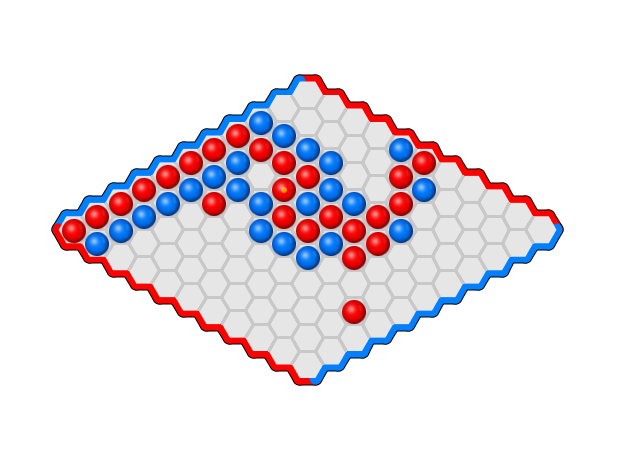Ludii Pre-Release
Ludii
Ludii is a new general game-playing (GGP) system, of which an early pre-release version has been published today. The system comes with a wide range of built-in games, and may be interesting for game-playing enthusiasts to simply play games! Ludii’s new game description language tends to lead to game descriptions that are significantly shorter than previous game description languages (such as Stanford’s GDL), and they also tend to be much easier to read. On top of those advantages, the system can run most of these games significantly faster than older GGP systems. All of these advantages combined are expected to make the system interesting for many Artificial Intelligence researchers, in particular those active in General Game Playing. The pre-release version of Ludii, together with other resources (such as a User Guide) may be downloaded from its website: http://ludii.games/

AI Controllers in Ludii
Ludii ships with a number of built-in AI controllers, which we aim to continue improving by following up on research as described in these three papers (all experiments in these were carried out using earlier versions of Ludii-in-development):
- Strategic Features for General Games
- Biasing MCTS with Features for General Games
- Learning Policies from Self-Play with Policy Gradients and MCTS Value Estimates
Ludii can also import custom AI implementations (currently only in Java). Instructions and examples for writing your own Ludii AI controller can be found in their own github repository.
Building New Games for Ludii
Games in Ludii are written using “ludemes”, which are keywords that correspond to a variety of common, high-level game concepts. An example description for Tic-Tac-Toe is provided below. It still looks a bit “formal” or “mathematical”, but is much shorter and more readable than, for instance, a GDL description of the same game.
(game "Tic-Tac-Toe"
(mode 2)
(equipment {
(board (square 3) (square))
(disc P1)
(cross P2)
}
)
(rules
(play (to (mover) (empty)))
(end (line length:3) (result Mover Win))
)
)
Modifying this game description to create a variant of Tic-Tac-Toe played on a 4x4 board would be trivial, only requiring the (square 3) part to be replaced by
(square 4), and (line length:3) by (line length:4) (under the assumption that we’d want to require a line of 4 to win this game). Advanced users can also
specify the options to implement such a variant directly inside a single Ludii game description file. More instructions on how to model your own games for
Ludii, including an explanation of this options mechanism and more, can all be found in our
Ludii User Guide (note: this link is for the pre-release version).
Digital Ludeme Project
Ludii is in development as part of the ERC-funded Digital Ludeme Project. This project aims to use computational techniques to gain more insight into how traditional games were played throughout history, and how they may have spread temporally, geographically, and culturally. This requires us to model all the games we wish to study (up to a thousand, or more including variants of games!) in a single, consistent, “mathematical” format. This is exactly what we do in Ludii, with its ludeme-based format. The ability to efficiently run all of these games – which, contrary to older GGP systems, is offered to us by Ludii – is also a prerequisite for the large-scale, AI-based evaluations of (reconstructions of) game rulesets that we aim to run in this project.
Leave a comment